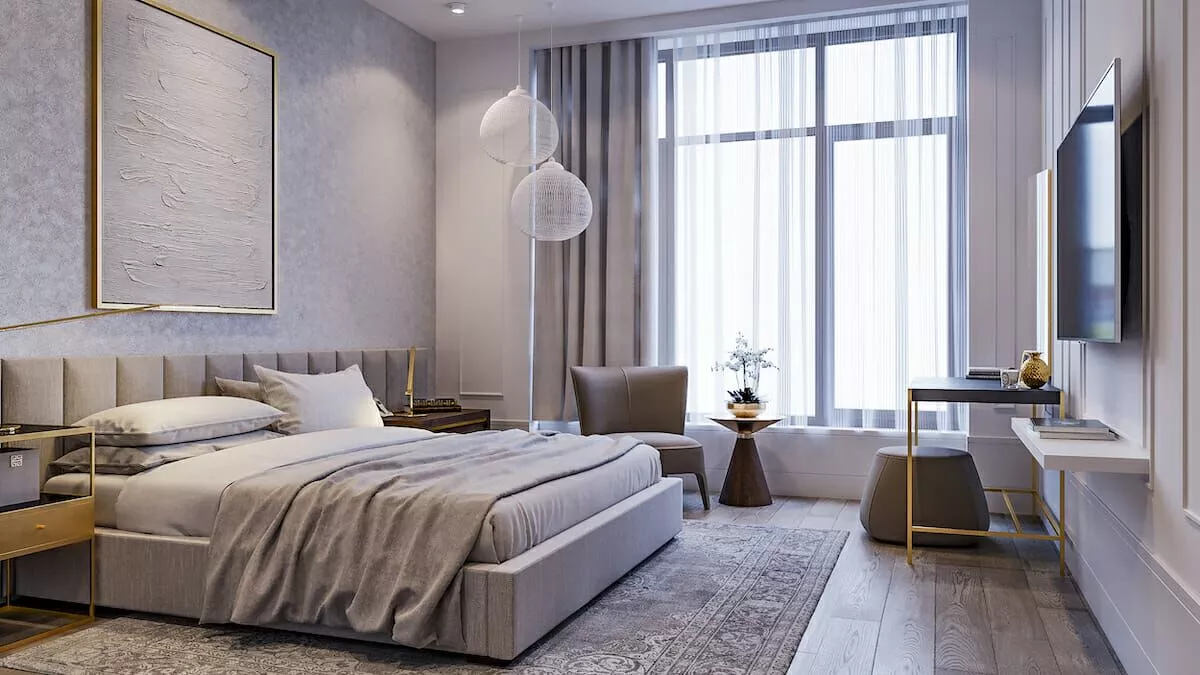NEWS
7 Best Bedroom Layouts for a Relaxing and Restful Sleep

Getting enough sleep is crucial for your health and productivity the next day. As a personal sanctuary, your bedroom plays a significant role in providing the right relaxing environment. If you find yourself tossing and turning at night, it might be time to reconsider your bedroom layout.
Bedroom layouts for a relaxing and restful sleep
Minimalistic Zen
This layout embraces simplicity, with clean lines and uncluttered spaces. A platform bed and quality mattress like Essentia organic latex, Japanese-inspired sliding doors, and minimal decor create a Zen-like ambiance, promoting tranquility and relaxation.
Cozy and bohemian
This bohemian design is inviting and homey, perfect for those with an independent spirit. Layers of textiles, vibrant patterns, and plants bring a sense of nature indoors, offering a comforting and laid-back sleep environment.
Scandinavian simplicity
This layout emphasizes functionality and minimalism while drawing inspiration from Scandinavian design principles. Light-colored wood, neutral tones, and ample natural light create an airy and soothing atmosphere.
Luxurious retreat
Enjoy the finest comforts with this lavish design. Your bedroom will feel like a true haven of relaxation with the addition of a sumptuous upholstered bed, silky curtains, and other fine furnishings.
Nature-inspired haven
Get away from it all without leaving the comfort of your bed. This environmentally conscious design draws inspiration from the outdoors using organic materials, earthy tones, and floral accents.
Modern elegance
Clean lines and a minimalist appearance characterize this sophisticated design. This design’s chic and relaxing atmosphere is ideal for drifting off to sleep.
Eclectic comfort
This comfortable arrangement has an assortment of different designs and materials. The eclectic mix of vintage furnishings, bright patterns, and individual touches creates a sense of warmth and familiarity.
The impact of bedroom layout on sleep quality
Positioning of the bed
The bed’s position is crucial for ensuring a peaceful sleep. Placing the bed against a solid wall, away from the door and windows, promotes a sense of security and minimizes disruptions.
Furniture placement
Clutter in the bedroom can lead to a cluttered mind, making it challenging to unwind. Optimal furniture placement creates a harmonious flow, allowing you to move around effortlessly and promoting relaxation.
Lighting choices
Balanced lighting can significantly impact the ambiance of your bedroom. Dimmable lights and warm hues promote relaxation, while excessive brightness can disrupt your natural sleep-wake cycle.
Color Scheme
Colors evoke emotions and affect your mood. Soft, calming colors like blues, greens, and neutrals can help create a serene atmosphere conducive to sleep.
Tips for creating your ideal bedroom layout
Assessing your needs
Identify what you need to feel comfortable and relaxed in your bedroom. Consider storage solutions, workspaces, and personal interests when planning your layout.
Maximizing space and flow
Arrange furniture in a way that optimizes the use of space and allows for easy movement. A clutter-free environment promotes a more peaceful state of mind.
Personalizing your space
Add personal touches to make your bedroom feel like a reflection of your personality and style. Display meaningful artwork or photographs that bring you joy.
Wrap up
Your bedroom should be a place of refuge and renewal, not just a place to sleep. By paying attention to your bedroom layout and incorporating elements that promote tranquility, you can transform it into a haven for restful sleep. Experiment with the seven best bedroom layouts mentioned above and discover the one that suits you best.
Kenneth is a proud native of sydney, born and raised there. However, he pursued his education abroad and studied in Australia. Kenneth has worked as a journalist for almost a decade, making valuable contributions to prominent publications such as Yahoo News and The Verge. Currently, he serves as a journalist for The Hear Up, where he focuses on covering climate and science news. You can reach Kenneth at bloggerjohnsmith12@gmail.com.










